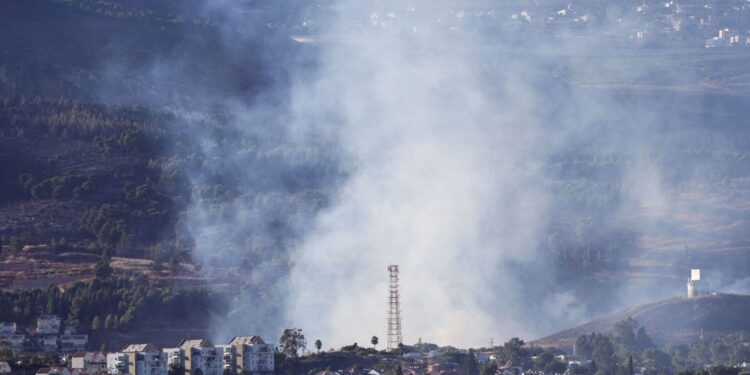Factories in northern Israel are under severe pressure amid the ongoing war and the accompanying economic challenges, as factory owners are forced to hide the extent of the damage to their facilities for fear of losing their customers abroad.
According to a report published by the Calcalist newspaper, a number of factories in northern Israel were directly damaged as a result of the ongoing missile bombardment from Lebanon, which led to the disruption of production, but industrialists are keen to show that things are going normally so as not to lose their contracts with international customers.
The extent of the damage and the impact of the war
The newspaper notes that more than 20 factories were damaged in the Haifa area and the north as a result of missile strikes or shrapnel from interceptions in recent months, according to data from the Union of Industrialists in Israel.
These factories are part of about 350 factories in the region, each employing more than 20 workers. These factories suffer from a significant shortage of workers, as many workers were called to reserve service in the army, while others were evacuated from their homes due to the ongoing confrontations near the border.
In a recent incident, a factory in the Shlomi area that produces medical equipment was severely damaged after missiles fell from Lebanon, and part of the factory roof collapsed on the production machines, disrupting the manufacturing process, but the owner tried to reduce the extent of the damage.
In an interview with Calcalist, the owner said that the factory was “closed – fortunately – because it was a Saturday, so there were no injuries among the workers. Despite the devastation, we have enough stock of goods to cover the upcoming orders, and we expect to resume production within two weeks.” Up to 3 weeks.
Fear of losing customers
Factory owners in the north express concern that continued bombing could lead to the loss of customers abroad who depend on stable supply chains.
The report indicates that some international customers have requested an increase in inventory to avoid any disruption in supplies.
For example, Ron Tomer, head of the Union of Industrialists and owner of the Unipharm pharmaceutical factory in Karmiel, revealed that a major international customer asked him to deliver products for the entire year of 2025 before the end of this year for fear of production disruption.
“Industrialists in the north feel as if they are ‘thieves in the night’, hiding the facts that their factories were bombed for fear that customers will feel unsettled and start looking for other suppliers in more stable countries,” Tomer adds.
Additional challenges
In addition to the damage caused by the bombing, factories in northern Israel are suffering from a severe labor shortage, and many factory owners say that a large number of their workers have been called to reserve duty, adding significant challenges to continuing production, according to Calcalist.
The global aviation crisis also caused a shortage of raw materials needed for manufacturing, at a time when foreign airlines stopped transporting goods to Israel due to the deteriorating security situation.
Reducing the budget of the Ministry of Economy
At a time when industrialists are struggling to continue their work, the Ministry of Finance announced its intention to reduce the budget of the Ministry of Economy by hundreds of millions of shekels, representing about a third of its budget, which amounted to about 1.5 billion shekels (about 400 million dollars) in 2024.
These cuts include the closure of the Advanced Production Institute, which aimed to improve competitiveness in small and medium industries by adopting advanced manufacturing technologies.
The cuts also include the budget of the Investment Authority, which aims to encourage the establishment of new factories and their expansion in priority areas.



